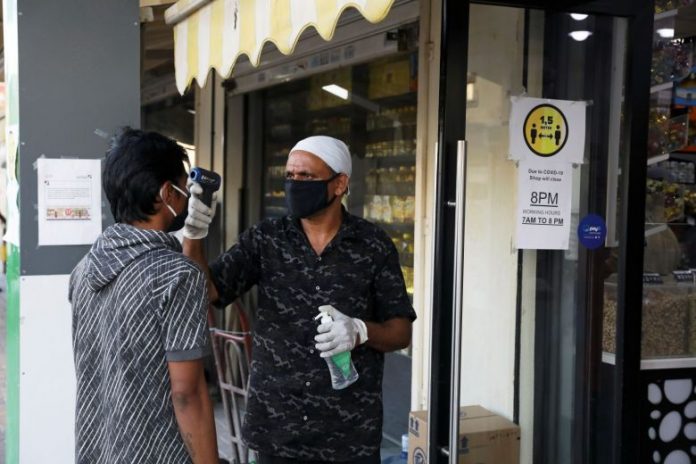The sweat of Indian migrant workers has long fuelled the oil-rich economies of Middle East. Even the Indian economy relies on them for the billions of dollars they remit home every year. But amid the coronavirus pandemic, these workers in the Arabian Gulf region have found themselves abandoned by both sides.
There is little support from their host countries, while India’s unrelenting position on its ban on international flights has made it impossible for them to return home. The crisis has worsened in the past week, with a surge in infected cases among Indians in the Gulf countries. In Kuwait, for instance, more than half of the 1,524 Covid-19 cases involve Indians. Besides being vulnerable to infection in their crammed “bed space” accommodations, growing retrenchment in recent weeks has also left thousands of them stranded without financial support.
“There are many people who have run out of cash, which has made it very difficult for them to arrange lodging and food,” advocate Haris Beeran told The Straits Times. On April 8, he filed a petition on behalf of the Dubai Kerala Muslim Cultural Centre in the High Court in the southern Indian state of Kerala, urging the Indian government to give landing permission for flights evacuating jobless workers and others in a similar situation from the United Arab Emirates.
The UAE like Kuwait has offered to fly back Indians who do not test positive for Covid-19.Mr Beeran said many among the vulnerable are labourers who have lost their jobs in recent weeks and Indians who were visiting family members and had expected to return home for medical care, such as chemotherapy and dialysis.
Medical treatment in the UAE is prohibitive for many of them, he added. But despite calls to let stranded Indians return home, the government told the country’s Supreme Court on Monday that it is not prepared to do it yet.
The severe risk posed by arrivals from an increasing number of countries affected by Covid-19 is something the government is seeking to minimise,” the Ministry of External Affairs told the court.
The Gulf Cooperation Council region has more than eight million Indian workers, of whom more than half are blue-collar workers.
The top court is simultaneously hearing a clutch of petitions seeking the evacuation of Indian citizens from countries in Middle East as well as the United Kingdom and the United States.
India banned international passenger flights on March 22, and has extended the ban until May 3, when the second phase of the nationwide lockdown is scheduled to end.
The impact of lockdowns has also been felt in South-east Asian countries such as Malaysia and Thailand, which have migrant workers from neighbouring countries.
When Malaysia imposed its restrictions on the movement of people on March 18, reports emerged of problems faced by Indonesian migrants, many of whom are construction and factory workers as well as waitresses and janitors who earn daily or weekly wages.
It prompted Golkar Party lawmaker Christina Aryani to urge the Indonesian government to send them food and face masks through the country’s embassy in Kuala Lumpur.
In Malaysia, as is the case in the Gulf region, many migrants live in packed residential units that make social distancing impossible.
Thailand, which began shutting down educational institutes and malls last month to implement social distancing, has also seen tens of thousands of migrants from neighbouring countries becoming jobless.
The International Organisation for Migration estimates that more than 100,000 workers have since returned home to Laos, Myanmar and Cambodia.
Republished from The Strait Times

















